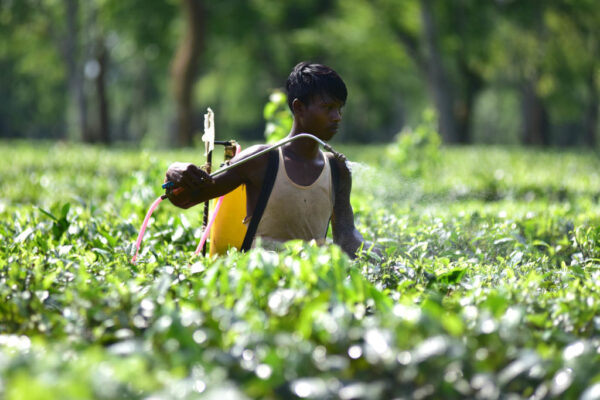European Commission commits to ending exports of banned chemicals
Landmark decision comes after Unearthed and Public Eye revealed EU manufacturers shipping tens of thousands of tonnes of banned pesticides to poorer countries

The European Commission has committed to ending the practice of EU factories manufacturing hazardous chemicals for export that are banned in Europe.
The decision comes after an investigation by Unearthed and Public Eye revealed EU manufacturers exporting tens of thousands of tonnes of banned pesticides overseas – with the bulk of the shipments intended for poorer countries where hazardous chemical use poses the greatest risks.
The chemicals strategy adopted by the Commission yesterday states that the EU will “lead by example, and, in line with international commitments, ensure that hazardous chemicals banned in the European Union are not produced for export, including by amending relevant legislation if and as needed.”
While the UK is currently a major exporter of banned pesticides from the EU, the Commission’s strategy will not apply to the UK, as it is intended to take effect after Brexit.
The commitment follows a statement issued by United Nations human rights experts this summer, which called on wealthy countries to end the “deplorable” practice of exporting chemicals banned in their own territories to poorer countries with weaker regulations.
Baskut Tuncak, the former UN special rapporteur on toxics who issued this summer’s statement, said the Commission’s new strategy was “a welcome development by the European Commision to address a long-standing injustice, and preserve its legacy of leadership on toxic threats to human rights.”
He added: “Exporting countries outside the EU should take note.”
Unearthed and Public Eye’s latest investigation found that in 2018 EU countries issued plans to export more than 81,000 tonnes of pesticides containing chemicals prohibited in their own fields.
Among the banned agrochemicals shipped by the tonne from EU ports were substances found by the EU’s own authorities to pose potential health hazards like reproductive failure, endocrine disruption or cancer, and environmental hazards like groundwater contamination or poisoning of fish, birds, mammals or bees.
More than two dozen different exporters were involved in this trade, and 11 different countries.
The investigation made national headlines in all the EU’s major banned pesticide-exporting nations, including the UK, Germany, Italy, the Netherlands, France, Belgium and Spain.
A previous joint investigation by Unearthed and Public Eye, published earlier this year, found that some of the most lucrative products for Europe’s agrochemical giants contained chemicals banned in their home countries.
These included weedkillers manufactured by Germany’s Bayer containing acetochlor, which was banned in the EU over concerns about contamination of drinking water and genotoxicity. They also included the long-banned herbicide paraquat, which is manufactured by Swiss-based Syngenta at its English factory in Huddersfield.
The Commission’s chemicals strategy has been described as a key part of the European Green Deal. The strategy document states that “chemical pollution is recognised to be a threat to the right to a life with dignity, notably for children and in particular in low and middle-income countries”.
An “action plan” published alongside the strategy gave 2023 as the “indicative” date for action on the goal of ensuring that hazardous chemicals banned in the EU are not produced for export.
The move would not prevent European companies from selling pesticides that are banned in the EU if those pesticides are also manufactured outside the EU.

